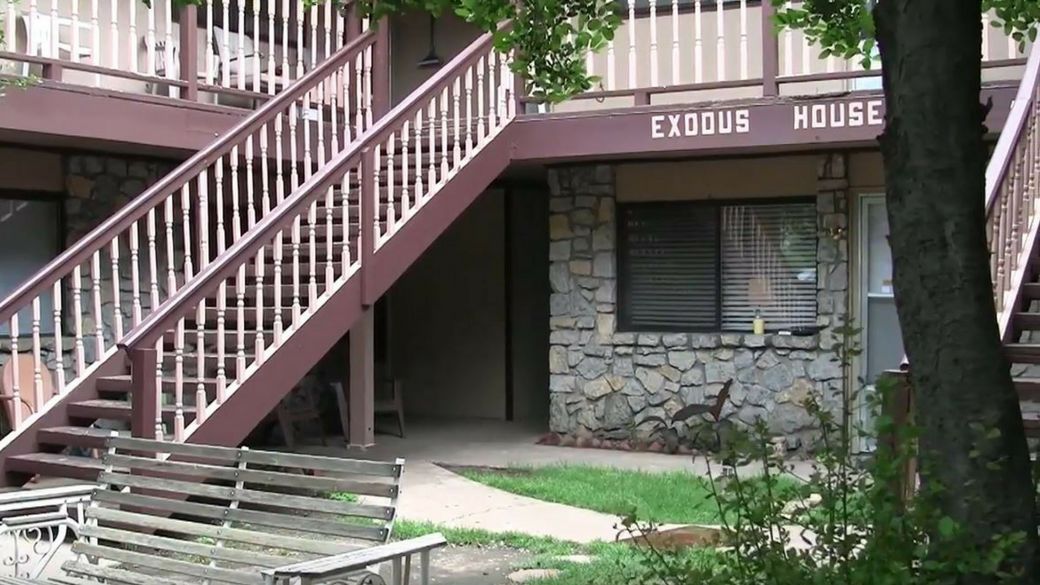Ministry With: Criminal Justice and Mercy Ministries
As inmates complete their sentences and transition back into life outside of prison, many struggle to find housing, employment and other services.

Oklahoma leads the nation in the incarceration of women and comes in just behind Louisiana as the second highest in overall incarceration. As inmates complete their sentences and transition back into life outside of prison, many struggle to find housing, employment and other services. The lack of resources available to them creates direct pathways to poverty.
Further, the rate of recidivism is higher for those without a support system and are unable to find a job or place to live. The Bureau of Justice Statistics found that within three years of release from prison, two-thirds of those released were arrested again.
Many faith communities engage in prison ministries that focus on providing spiritual accompaniment for inmates. It is less common, however, for faith communities to walk with returning citizens to offer stability and assistance as they transition into life outside of prison. Recognizing the lack of support for the growing number of returning citizens in their state, the Oklahoma Annual Conference sought to interrupt the cycle of incarceration in their communities.
We spoke with Kristin Harlin with Criminal Justice and Mercy Ministries in Oklahoma to learn more.
Tell us about the ministry
Criminal Justice and Mercy Ministries was developed in the early ‘90s due to incarceration rates being so high for men and women. There were little to no resources for people in Oklahoma exiting prison that would otherwise be homeless. We opened Exodus House in Oklahoma City in 1998 and in Tulsa in 2002 to meet the need of this population.
Exodus House is a transitional living apartment community where we equip people with the skills to re-enter society in a healthy capacity. Residents are referred to us through their relationships with faith leaders during their incarceration. We offer counseling and education to change criminogenic thinking patterns. Family reunification is offered to single parents. Residents are sponsored by churches and individuals to establish relationships and community. We have begun partnering with apartment communities to offer second chance housing instead of “No Felons Welcome” housing. We have residents living together in communities after they graduate our community to help keep them connected and on the right path.
What dream is the ministry pursuing?
Our ministry is dedicated to breaking the generational cycles of incarceration. With little to no programming in our state to do this, we are dedicated to helping people out of the mindset they were once in to see a healthy reality. We are dedicated to getting people jobs for sustainable income. We have counselors to deal with past traumas to help with today’s thinking, as well as classes and programs to educate on healthy thinking and living.
Is there a particular moment or memory that stands out for you?
When I first began working at CJAMM, I wanted to shadow an Exodus House resident to see how the program truly worked. I shadowed “Byron.” He said during his intake when we picked him up from prison that he had to make this work. When asked why, he said something to the effect of, “my mom called and said my son passed a message through her that I better get right with God.”
Byron got a job and began his counseling. Each week I asked Byron about his children, and he would say not yet. A few months in, Byron got a job working in plumbing and even smiled when talking about sewage as he was making good money now with his license. On the night of his graduation from Exodus House, I walked in to see the biggest smile I had ever seen. I walked further in the door to see two beautiful children sitting next to their proud dad.
Not only had he reunified with his family, but he could also support them mentally and financially, as well have a community of faith to wrap around all of them indefinitely as they join society.
What have your neighbors (those utilizing services) taught you in doing this work?
People often label people as criminals, inmates, homeless, etc. I have learned each individual person is a person. Labels hurt. Labels stick around our entire lives. We do not see the labels; we see people who have needs but also individuals that have talents and skills to offer. It takes everyone for a community to be healthy.
What challenges have you encountered, and how have you adapted?
Because of the incarceration rates in Oklahoma, we have found that we cannot work with everyone. Our residents that graduate give back in so many ways to help with this issue. We have several graduates or members of our communities who are opening transitional homes to allow more spaces to help those affected by incarceration.
What advice would you give to others who are working to be in ministry with?
See the people, not the label. If they tell you their story, believe them and empathize with them. Then work with them to make a better future.
How can people contact you if they are inspired by your ministry?
Kristen Harlin
Office: 405.530.2015
Email: kharlin@okumc.org
Website: www.cjamm.org